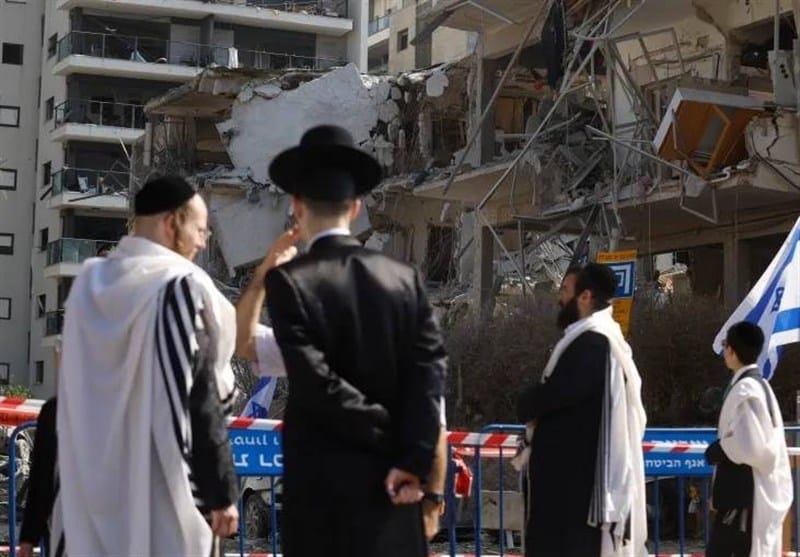The Early Shattering of Zionist Expectations in the War with Iran
At the outset of the Zionist regime’s war against Iran, there was notable internal and political unity among the Zionists. Fueled by the optimism promoted by the regime’s cabinet and military, which confidently asserted that their objectives would be swiftly achieved through attacks on Iran, Zionist society initially showed strong enthusiasm for the conflict.
The Early Collapse of Zionist Expectations in the War with Iran
However, this initial consensus began to unravel almost immediately. Israeli military operations failed to accomplish any of the stated goals—most notably, the destruction of Iran’s nuclear program and the neutralization of its missile capabilities. As reports emerged detailing the significant damage Iranian missiles inflicted on critical Zionist infrastructure—including key military and economic sites—public criticism of the regime’s leadership intensified. Dissatisfaction grew over strategic miscalculations at the war’s onset, severely fracturing internal unity and eroding public trust in the military’s ability to sustain the conflict.
Hebrew sources noted that international backing, particularly from the United States, played a vital role in motivating Israel to initiate the attack on Iran; yet, this support did little to maintain domestic consensus, which rapidly dissipated.
Deepening Divisions on the Zionist Home Front
As the war progressed over several days, cracks became evident within Israeli society. Unprecedented casualties combined with massive financial strains deeply affected public opinion and undermined the resilience of the home front, exposing the population’s vulnerability to Iranian missile strikes.
Political rifts widened sharply, with different factions clashing over Israel’s war strategy and its severe impact on daily life and the economy. Criticism of war management and escalating costs intensified, causing the initial zeal and widespread public support for the conflict to fade quickly.
The erosion of internal consensus over the war with Iran, coming on the heels of Israel’s deteriorating situation following the Gaza conflict, further fragmented the regime’s military and political focus. During the 12-day conflict between Iran and Israel, the Gaza Strip—regarded by Hebrew sources as the primary front—saw a marked surge in Palestinian resistance operations. Deadly attacks against Zionist soldiers by Gaza-based groups significantly unsettled Israeli public opinion.
Amid these mounting challenges, a critical question emerged within Zionist society: Can Israeli leadership restore internal cohesion and successfully navigate the complex new reality where multiple military and political crises unfold simultaneously on various fronts?
Zionists from consensus to conflict over war with Iran
Saleh Lotfi, a researcher and political analyst on the affairs of the Zionist regime, said in this regard: The decline in Israeli consensus over war with Iran occurred in a situation where conflicts in Gaza continued and the security and political situation on the Israeli domestic front had already deteriorated, along with increasing protests and criticism of the cabinet over the marginalization of the issue of Israeli prisoners in Gaza.
He added: Israel’s failure to achieve practical and realistic achievements in the war with Iran has exacerbated the political and social divide in the Zionist regime and increased the regime’s instability on the Gaza and West Bank fronts.

